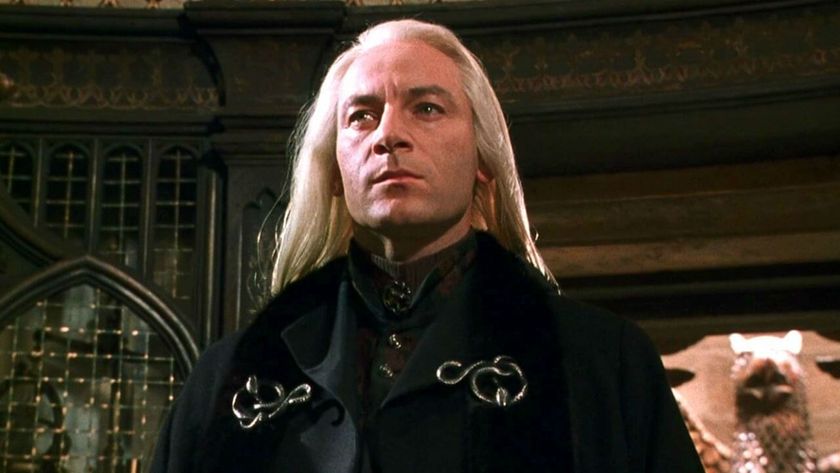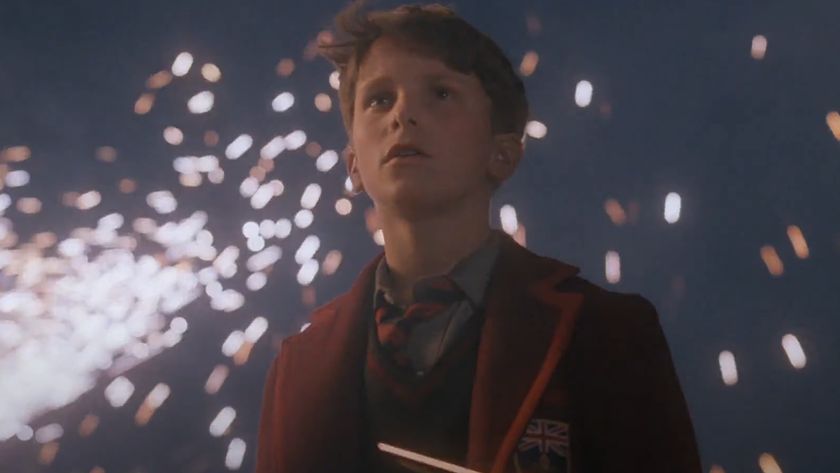Kristen Wiig is Annie, a thirtysomething woman without direction. She works a minimum wage job, sleeps in a tiny apartment with awful roommates, has sex with a man who doesn’t care about her, and lives an existence devoid of prospects. Annie does her best to ignore the fact that her future is a dead-end until her best friend Lillian (Maya Rudolph) announces that she’s getting married and wants Annie to be her maid of honor. That seems like a good idea, until Annie starts to realize she doesn’t have enough money to afford a dress, much less plan the kind bachelorette party her friend deserves. While Annie struggles to hide the fact that she can’t afford to be a part of this marriage ceremony, she’s exposed to her friend’s new life full of completely together friends. Suddenly, by contrast, Annie’s life seems very shabby indeed.
Those of you expecting this Bridesmaids review to describe the film as a female version of The Hangover should probably hit the eject button on your web browser. This isn’t that movie. Instead, it’s about what happens when your friends move on to bigger and better lives, and you get left behind. Annie tries to keep up with Lillian, to do right by her, to give her the wedding she deserves, but it’s like pedaling a bike without any wheels. The harder she tries the worse she fails. The other bridesmaids rally around her at first, without really knowing why it’s all going horribly wrong, but you only need to shit in a sink once before you just want to get the hell out off this doomed merry-go-round.
The women in Lillian’s bridal party make up a sort of chorus, with their own problems and distinct personalities. Melissa McCarthy is the real breakout of the bunch as butch but still distinctly female Megan, but the film makes it a point to utilize all of its feminine talents to the fullest. It does this by approaching comedy with a woman’s sensibility. Yes, even in a scene which involves nearly Farrelly brothers levels of farting.
Bridesmaids does something almost revolutionary, not by letting women be funny, but in the way it presents R-rated comedy with a female point of view. Other movies have tried, but too often they end up like The Sweetest Thing, in which the script asked Christina Applegate and Cameron Diaz to dance for laughs by talking and acting like men. By contrast, this is the kind of female funny that may actually exist somewhere in the real world. Most men probably imagine that when they’re not around, women just hug each other and cry a lot, but the feminine gender has its own comedic sensibility and voice, one which doesn’t always involve pouting and waiting for Hugh Grant to crack wise. That the film pulls this off while also being a wedding movie, is even more of an eye-opener. This wedding story is about people and their relationships with each other, not trying to find the right shoes or arguing over hairstyles.
Midway through Bridesmaids there’s a scene in which Kristen Wiig sits in a parking lot and has a conversation with the movie’s male lead, correction, the only man who gets any significant screen time in this film unless you count the hair on Jon Hamm’s chest. He’s portrayed by Chris O’Dowd, playing the most likable cop seen on screen since Superbad. He’s funny, charismatic, and in any other film this would have been the place he’d take over the scene while Wiig plays it straight. That never happens. Instead, thanks no doubt in part to Paul Feig’s deliberate direction, they engage as comedic equals, trading barbs as they talk things out on the hood of his cop car. Wiig remains in control of the comedy happening in her movie. Eventually O’Dowd departs and Wiig goes back to carrying things on her own.
Carrying the movie is exactly what Wiig does. Her talent is undeniable. She’s surrounded by a fantastic ensemble of brilliant female performers, but Bridesmaids is without question her film. She shines in a role that’s equal parts comedy and drama, in a movie that hits all the right notes to be exactly the kind of story I’d like to hope women are waiting for. Bridesmaids needs women to see it, if there are ever going to be more movies like it. I loved it, but I’m not this movie’s audience, and men aren’t going to support anything so heavily steeped in the trappings of a wedding unless a blackout in Vegas are involved (it isn’t).
Paul Feig’s film has gambled on women, assuming that female moviegoers are sick of being reduced to man-starved, materialistic shopaholics by Hollywood, and want to see a mainstream comedy which gives them a chance to live and breathe as honest to god, funny, interesting people with their own point of view. Ladies, it’s up to you.
Most Popular






